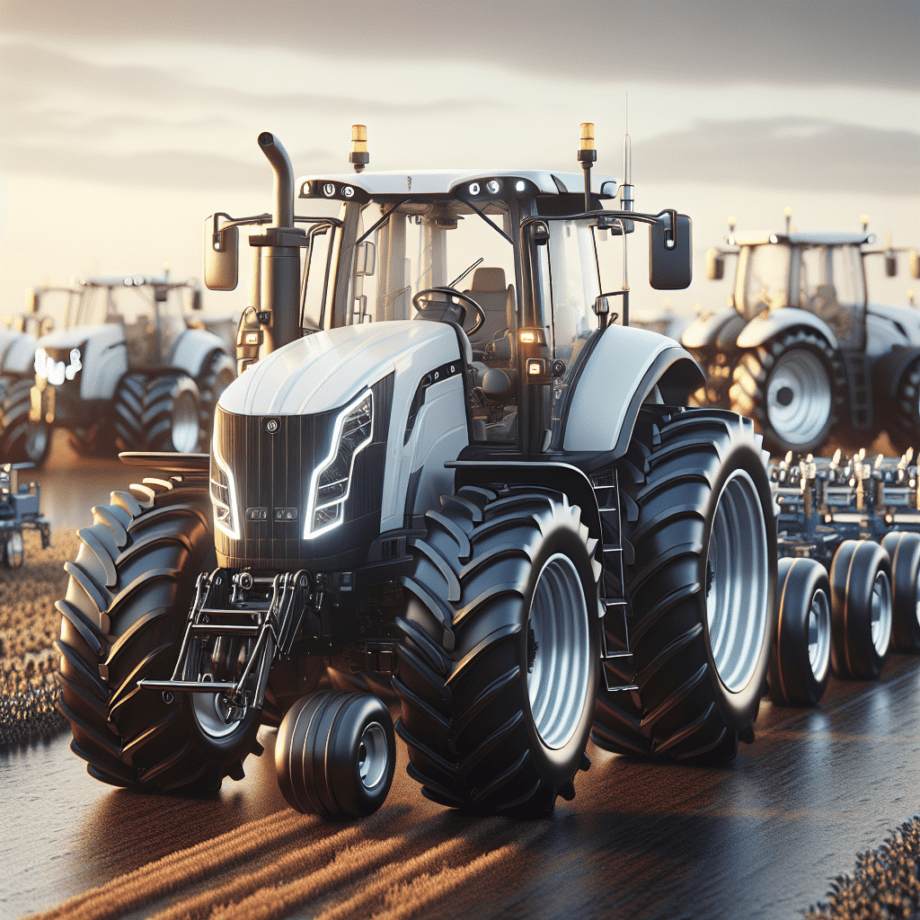Choosing the right tractor for livestock farming is crucial for the efficiency and productivity of your agricultural operations. In this article, we will explore the best tractors suited for livestock farming, considering various factors such as power, versatility, and ease of use.
Factors to Consider When Choosing a Tractor for Livestock Farming
When selecting a tractor for livestock farming, several key factors must be taken into account to ensure that the machine meets the specific needs of your farm. These factors include:
Power and Performance
The power and performance of a tractor are critical for handling the various tasks associated with livestock farming. Tractors with higher horsepower are generally more capable of performing heavy-duty tasks such as plowing, hauling feed, and moving large bales of hay. However, it’s essential to balance power with fuel efficiency to keep operational costs manageable.
- Horsepower: For most livestock farms, a tractor with 50-100 horsepower is sufficient. Larger operations may require tractors with even more power.
- Torque: High torque is essential for tasks that require significant pulling power, such as towing trailers or operating heavy machinery.
Versatility and Attachments
Livestock farming involves a wide range of activities, from feeding and bedding to manure management and pasture maintenance. Therefore, a versatile tractor that can accommodate various attachments is invaluable. Common attachments include:
- Front-end loaders: Useful for moving feed, manure, and other materials.
- Hay balers: Essential for producing and handling hay bales.
- Manure spreaders: Important for efficient manure management.
- Mowers and brush cutters: Necessary for maintaining pastures and fields.
Ease of Use and Comfort
Since livestock farming often requires long hours of work, the ease of use and comfort of the tractor are important considerations. Features that enhance operator comfort and convenience include:
- Ergonomic controls: Intuitive and easy-to-reach controls reduce operator fatigue.
- Comfortable seating: Adjustable and cushioned seats improve comfort during long working hours.
- Cab options: Enclosed cabs with heating and air conditioning provide protection from the elements.
Top Tractor Models for Livestock Farming
Based on the factors mentioned above, here are some of the best tractor models for livestock farming:
John Deere 5E Series
The John Deere 5E Series is renowned for its reliability and versatility, making it an excellent choice for livestock farmers. Key features include:
- Power: Available in models ranging from 50 to 100 horsepower, the 5E Series offers ample power for various tasks.
- Attachments: Compatible with a wide range of attachments, including front-end loaders, hay balers, and manure spreaders.
- Comfort: Ergonomic controls and optional cab configurations enhance operator comfort.
New Holland T4 Series
The New Holland T4 Series is another popular choice among livestock farmers, known for its robust performance and user-friendly design. Key features include:
- Power: The T4 Series offers models with horsepower ranging from 55 to 115, providing flexibility for different farm sizes.
- Versatility: Compatible with various attachments, including mowers, loaders, and spreaders.
- Comfort: Spacious cabs with excellent visibility and ergonomic controls ensure a comfortable working environment.
Case IH Farmall Series
The Case IH Farmall Series is well-suited for livestock farming due to its durability and ease of use. Key features include:
- Power: Models in the Farmall Series range from 30 to 140 horsepower, catering to different operational needs.
- Attachments: Supports a variety of attachments, making it a versatile option for livestock farmers.
- Comfort: Designed with operator comfort in mind, featuring adjustable seats and intuitive controls.
Maintenance and Care for Livestock Farming Tractors
Proper maintenance and care are essential to ensure the longevity and optimal performance of your tractor. Here are some maintenance tips for livestock farming tractors:
Regular Inspections
Conducting regular inspections helps identify potential issues before they become major problems. Key areas to inspect include:
- Engine: Check for oil leaks, coolant levels, and air filter condition.
- Tires: Ensure tires are properly inflated and free of damage.
- Hydraulic system: Inspect hoses and connections for leaks or wear.
Scheduled Servicing
Adhering to the manufacturer’s recommended service schedule is crucial for maintaining your tractor’s performance. Regular servicing includes:
- Oil changes: Regularly changing the engine oil and filters helps maintain engine health.
- Fluid checks: Ensure hydraulic, transmission, and coolant fluids are at appropriate levels.
- Greasing: Lubricate moving parts to reduce wear and tear.
Storage and Protection
Proper storage and protection can extend the life of your tractor. Consider the following tips:
- Indoor storage: Store the tractor in a covered area to protect it from the elements.
- Cleaning: Regularly clean the tractor to remove dirt, debris, and corrosive substances.
- Battery care: Disconnect the battery if the tractor will be unused for an extended period.
Conclusion
Choosing the best tractor for livestock farming involves considering factors such as power, versatility, and operator comfort. Models like the John Deere 5E Series, New Holland T4 Series, and Case IH Farmall Series offer excellent options for livestock farmers. Additionally, proper maintenance and care are essential to ensure the longevity and optimal performance of your tractor. By selecting the right tractor and maintaining it well, you can enhance the efficiency and productivity of your livestock farming operations.
